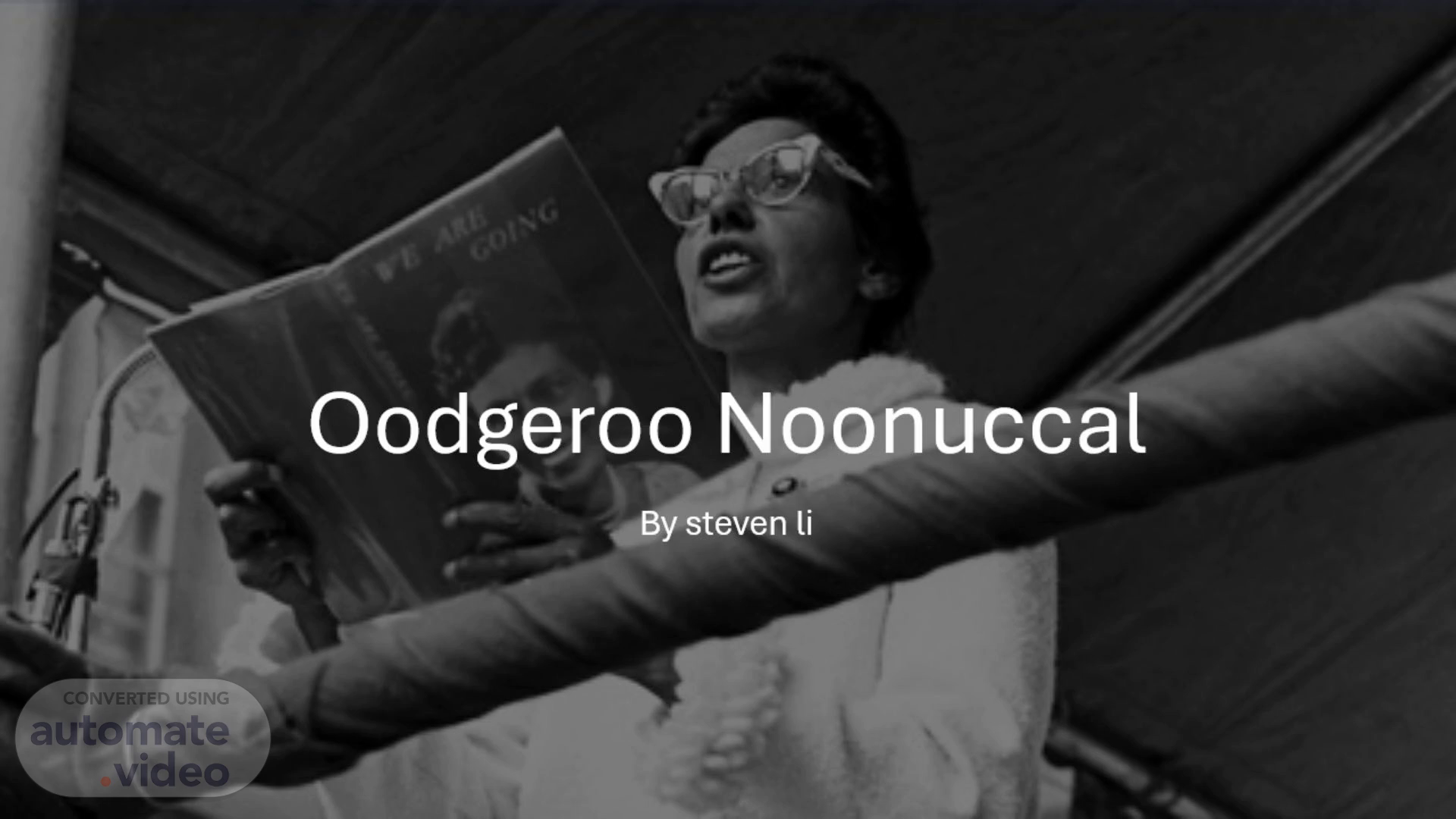Scene 1 (0s)
Women's History Month: Oodgeroo Noonuccal (1920-1993).
Scene 2 (8s)
[Audio] Oodgeroo Noonuccal (formerly known as Kath walker) was a trailblazing aboriginal Australian poet, activist, artist and educator that expresses ideas of cross-cultural connection, cross-cultural appreciation, place and nature, and spirituality throughout her poems which consist of her Aboriginal heritage and the impact colonisation had on the Aboriginal culture. Noonuccal also had spent time in China through an exchange program which led her to write poems about China as she had found some similarity in China's history to her own culture..
Scene 3 (44s)
[Audio] Noonuccal made a lasting impact on Australia society by promoting indigenous education, environmental preservation, and Aboriginal right. Activism for Aboriginal rights: in 1964, she published "we are going," a collection of poems that examined the lives of Aboriginal people under colonial control, making her the first Aboriginal Australian to do so. She rose to prominence as an advocate for aboriginal rights, fighting systematic racism and promoting indigenous self-determination. She was prominent figure in Indigenous groups that called for constitutional amendments to abolish the government's authority over aboriginal people. In 1969, she became the first Aboriginal Australian to run for a seat in the Queensland parliament..
Scene 4 (1m 35s)
[Audio] Environmentalism: She made environmental conservation a central focus of her work when she founded Moongalba, an Education and Cultural Centre, after returning to her birthplace on north Stradbroke island ( Minjerribah) in 1971. She gave tourists to the island instruction on aboriginal culture and culture at the Noonuccal-Nughie Education and Culture Centre, which she founded at her Moongalba residence. "Father sky and mother earth" and "Stradbroke dreamtime," two children's books she wrote and drew, were intended to introduce aboriginal stories and culture to a broader audience. She was a strong proponent of education's ability to change an unfair society.
Scene 5 (2m 21s)
[Audio] To highlight the shared identity and experiences of indigenous Australian, Noonuccal employed inclusive vocabulary, such as "we" and "our," which strengthened their traditional ties to the land and bolstered their sense of belonging..
Scene 6 (2m 38s)
[Audio] Poetic methods: she expertly used poetic methods like metaphor, symbolism, and simile to portray difficult concepts and feelings, such the effects of colonialism and the suffering of Indigenous people. Imagery: one of the main components of Indigenous identity, the spiritual and culture value of the Australian landscape, was conveyed to her audience through Noonuccal's use of vivid imagery, especially that which was connected to nature and the land.
